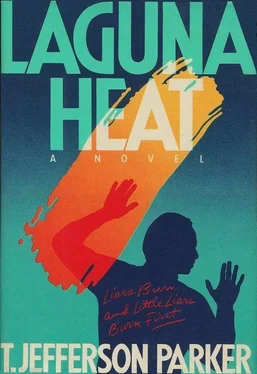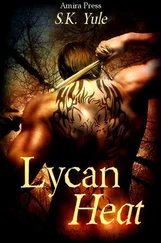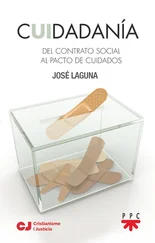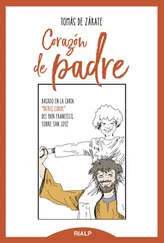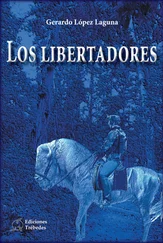“No. No, I’m sorry,” he said finally. He gave Shephard a diluted smile. Shephard saw that his business cards, arranged in a porcelain tray atop the counter, said Charles Mitchell. “What did he do?”
“He killed two people in town, Mr. Mitchell. They were about your age. Good people.”
Charlie Mitchell’s hand shot again to his thinning hair. “The Fire Killer?”
“He’s still in town. He’s a painter. Trying to sell some of his work to the galleries. Maybe he tried you.” Shephard watched Charlie Mitchell lift his teacup with unsteady fingers. He sipped quickly, set down the cup, and sighed. “Have you seen him?”
“Dammit. I’m afraid... it might cost me.”
“Cost you what?”
“That depends on you.”
“Then I guess you’ll have to depend on me, Mr. Mitchell.”
The owner sighed again, then turned to a cabinet behind the counter. “Borderline, some of them,” he said with his back to Shephard. “The ones that work require a state and local check, as you well know. And a fifteen-day wait. The ones that don’t work are classified as antiques, and we sell them as-is, no forms, no wait.” He brought a large wooden case to the counter and lifted the lid. Inside were five derringers, and space for one more. “When a customer looks dependable, I’ll sell him a gun without the usual forms. I reason that anyone spending good money isn’t going to use it on someone else.”
Shephard pointed to the Identikit and Charlie Mitchell looked very disgusted with himself. His entire face lit with red; his ears seemed ready to bleed. “When?”
“Yesterday. Friday. An old Colt thirty-two. Jesus Christ. He was an old fellow and very polite. And he paid... oh hell, he paid cash.”
By nine o’clock Shephard had worked his way into the gay sector of town, the hub of which was the intersection of Crest Street and the highway. Things were still quiet, although the streets were beginning to fill up with the men who nightly crowded the bars, hotels, beaches, and stores until the early hours of morning.
At Valentine’s, the most popular gay bar/hotel in town, Shephard ran embarrassedly into an old schoolmate, who was about to show two men to their room when he looked at Shephard and smiled enthusiastically. He gave the key and instructions to an assistant — a boy who looked no older than fifteen — then shook Shephard’s hand politely. “I remember you from high school, I think,” he said. “I’m Ricky Hyams.”
“I remember you. Tom Shephard.” Shephard noted that Hyams had permed his hair and put on weight since he’d seen him last. He was dressed preppie — penny loafers, a pink golf shirt, and cotton trousers — and Shephard detected a hint of liner on the eyes.
“Are you looking for a room?” he asked happily.
“No, thank you,” Shephard answered, aware of the stares from two gentlemen who loitered near the lobby cigarette machine. “But I am looking for—”
“You’re a policeman, aren’t you? That’s right, you left for Los Angeles with Louise Childress right out of high school. Did you get married?”
“Yes, two years later.”
“How is she? Louise was always so funny.”
“Well, fine. It didn’t work out all that well.”
Hyams nodded understandingly and shot a quick glance to the men by the cigarettes. Then back to Shephard.
“It’s hard to get along. Always will be.”
When the assistant returned, Hyams left him in charge of the desk and led Shephard into Valentine’s main bar. The place was dark and still quiet. The disco music, strangely subdued, issued from two large wall speakers. A network of tiny lights on the ceiling and walls blipped to the beat of the music, pulsing with each quiet thump of the drum.
“We’ve got two dozen rooms upstairs and behind,” Hyams said proudly. “The dancing doesn’t start really happening until about ten. Food is good and everybody gets along. First time you’ve been in?”
Something in Ricky Hyams’s voice told Shephard that he was being looked on as a convert. He nodded abstractedly and handed Hyams the Identikit. In the beam of a small flashlight, Hyams studied the sketch momentarily, then looked up. It was apparent to Shephard that something in Hyams’s mood had changed.
“Never seen him,” he said with a tone of regret. “Sorry. He’d look better without the beard. Might try some of the other places. There’s the Little Shrimp or the Boom-Boom Room, you know.” Hyams gave Shephard the sketch and wiped his hands against his trousers. “If I see him I’ll give you a call, okay? I see lots of faces around here.”
“But not this one?”
“I already told you once.” Hyams sounded hurt. “And I promise I’ll call. Look, Tom, I’m getting ready for a big night. But come back earlier sometime. We can laugh about the old days at Laguna.”
Even at ten o’clock, when Shephard was approaching the last row of galleries south of the gay quarter, the night was still warm and balmy. He had tried the Little Shrimp and the Boom-Boom Room and been met with the same regrets, received the same promises to call if the man was seen.
In a brightly lit gallery called Laguna Sunsets, he found a tired woman counting out the register. She smiled wanly when he walked in. She counted out a thin stack of money and slid the drawer halfway back into the register. Still shuffling the bills in her hand, she glanced at the sketch that Shephard had laid on the counter in front of her and nodded.
“He came in this week,” she said. “Monday, maybe Tuesday. What’s he wanted for?”
“Murder.” She looked back down at the money in her hand and continued counting. Must have been a tough day, Shephard thought. Even murder doesn’t get a reaction. “Did he buy? Sell? What did he want?”
“Seller,” she said. “He had two canvases with him, and said he had more in the car.” She dropped the money in a sack and put the sack in her purse.
“And?”
“Couldn’t do it. Too bleak, too black. I sell art but I don’t sell gloom. Why should someone look at something that makes them feel dark inside?”
The question struck Shephard as deceptively simple, and the answer he gave seemed deceptively complete. “The same reason someone would paint it,” he said. “Because that’s how they are.”
“Then he was real dark, I’d say. He showed up a few days later. Yesterday, I think. He stuck his head in the door and said he didn’t need any cretin gallery owners anymore. Said he had a new car and lots of money. He pulled out a wad of bills and waved them at me. Robber, too?”
“Just a killer.”
“Well, at least he knows what he wants,” she said, turning the Yes We’re Open sign to Sorry We Missed You.
The woman’s exhaustion seemed to draw out his own. He walked her out of the shop and watched her disappear down the sidewalk, walking slowly and stiffly. His car was waiting up the highway, two very long blocks away.
He drove out Laguna Canyon Road until he saw the willow tree sagging its green shadow over Jane’s house. A light was on inside, and when he parked he thought he saw her behind a window. He ran his hand through his hair and took a deep breath. Buster began yelping in his pen. He rang the doorbell twice, holding an Identikit sketch, his ostensible reason for coming there. Half wishing he hadn’t come, he rang again. Why is this so hard? Ah, he thought, footsteps from inside... but it was only the thump of Buster’s slick body on cement. From behind him the beast croaked with stupid verve. He felt a dribble of sweat making its way down his back, wondered if he smelled bad.
He rang once more, then turned away, started the Mustang and headed — for what reasons he wasn’t sure — to Tim Algernon’s stables up the road.
Читать дальше
